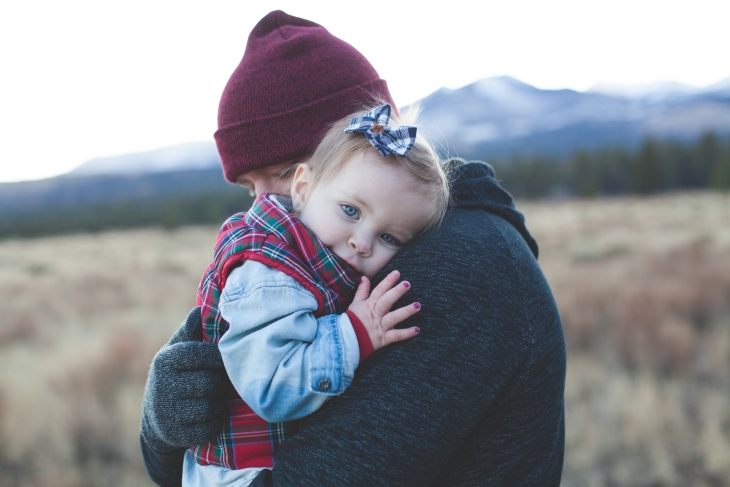
If you’ve been in a relationship with a person who abuses alcohol, you know the drill. You know how it feels to internalize another person’s addiction. You take their drinking, recovery and relapses personally — it’s easy to feel that if a person loved you, they wouldn’t drink. It’s even more difficult when you feel that your partner chooses alcohol over your children.
When a parent is addicted to alcohol, the entire family feels the effects. Children of people who abuse alcohol are particularly vulnerable. Children are malleable and are learning what is expected of them from their interactions with the people around them, especially their parents.
Throughout a child’s development, their specific emotional, social and physical needs change from day to day. When a parent abuses alcohol, they miss out on the cues telling them what the child needs. Substance abuse interferes with a parent’s ability to prioritize their child’s needs – they are busy prioritizing their own need for alcohol.
So, what do you do when your child’s other parent abuses alcohol? You want to keep your child safe, both physically and emotionally. Yet, you have to navigate your child’s relationship with the other important person in their life. How can you do both? It’s a tough question, and probably one you never dreamed you would need to answer.
You may still be partnered with the person abusing alcohol, or you may no longer be in a relationship. You have a world of feelings to navigate with the partner as well, but today we are going to focus on how you can best support your child or children and minimize the effects of alcohol abuse on your family.
How are children impacted by parental alcohol abuse?
Children of alcoholic parents often experience the profound impact of inconsistent and unreliable caregiving. Drunk parenting creates an unstable environment that can lead to long-term emotional and behavioral challenges. Seeking support through therapy, support groups, or counseling can be invaluable for children navigating the complexities of growing up with an inconsistent father, fostering resilience and healing.
If you’re co-parenting with a person addicted to alcohol, you already see the ways substance use has harmed your child. Likewise, the data on children of parents who abuse alcohol isn’t positive. Childhood is the blueprint from which the child will build their adulthood. Living with a parent who abuses alcohol can change a child’s path adversely.
First and most importantly, the physical safety of a child is often compromised by alcohol. Whether a parent is driving while intoxicated or simply not protecting the child from dangerous situations, accidents happen when a person who is not sober takes care of a child. Additionally, children of parents who abuse alcohol are also three times more likely to be physically abused than their peers.
The chaos and instability of living with a person who abuses alcohol is traumatic. Childhood trauma makes a child more likely to abuse alcohol when they are adults. These children are also more likely to develop social and mental health disorders as they mature.
Many children of people who abuse alcohol also experience their parents’ divorce. There’s no doubt that divorce impacts kids, but most kids are able to recover and establish a new normal within a year or so. This first year can be tough, though, and some kids experience lower self-esteem, anxiety and depression. When these effects persist, they can linger into adulthood. Children of divorce are more likely to suffer from mental health issues and more likely to get divorced as an adult. Children of divorce are also more likely to abuse alcohol as adults.
Some risk factors are associated with worse long-term outcomes for kids with parents who are addicted alcohol:
- Lack of a stable adult
- Abandonment by parent
- Alcohol abuse in the family home
- Neglect of any kind
- Domestic violence
- Physical, sexual or emotional abuse
- Inconsistent rules and boundaries
- Lack of professional intervention for the addiction
- Severity of alcohol addiction
The Link Between Trauma and Alcohol Use in the United States
Research shows a concerning trend in the United States: people with post-traumatic stress disorder (PTSD) are at a higher risk of developing substance use disorders, particularly alcohol use disorder (AUD) defined in the Diagnostic and Statistical Manual (DSM).
This increased risk can lead to dangerous behaviors like binge drinking, which can further negatively impact mental health in the long term. If you or someone you know is struggling with trauma and has begun to use alcohol to cope, it’s important to seek help. Mental health professionals can provide treatment programs specifically designed to address both AUD and PTSD. These programs may include therapy, medication, and support groups. Don’t wait – stopping drinking now can decrease your risk of long-term health problems.

How are children resilient to parental alcohol abuse?
Learning how to co-parent with a person who abuses alcohol can be a scary and unpredictable time. While there are risks for a child who has parent who is dependent on alcohol, it’s also important to keep in mind that children are incredibly resilient. With the support of one grounded, thoughtful parent, a child can overcome the obstacles caused by an addicted parent.
Some factors can protect children from the negative effects of alcohol addiction, including mental health issues and addiction to drugs and alcohol.
Protective factors for kids include:
- Support from school
- Support from immediate and extended family members
- Identifying goals and dreams
- Education or work opportunities
- Self-perceived ability to make choices
- Close positive bond with at least one stable adult
- Small family size
- Participation in activities
How to support a child through their parent’s addiction
1. Set boundaries and stick to them
Boundaries are the most important factor when you have any relationship with a person addicted to alcohol. Boundaries are a set of rules created by you, your child or children and their other parent. These rules provide your child with predictability and consistency.
Creating and sticking to a parenting plan can help enforce boundaries with your co-parent. Set specific rules around time your co-parent will spend with your child, who will be paying for your child’s expenses and any other needs of your child. The boundaries you set will likely be tested by your co-parent. It’s your job to maintain these boundaries to protect the physical and emotional safety of your child.
“Substance abusing individuals tend to be very intelligent, resourceful and good at getting what they want,” says Licensed Clinical Social Worker, Jessica Glenn. “We often don’t give them enough credit!” Glenn suggests that setting boundaries helps people who abuse substances take responsibility for their actions. “If you stick to your boundaries, your child’s parent will eventually learn you’re not budging and they’ll hopefully make adjustments in favor of your child.”
2. Set a good example by taking care of yourself
Just as your child needs the support of a therapist, their teachers and their peers, you deserve support throughout this chaotic time as well. Glenn recommends attending the 12-step group Al-Anon as the first step in co-parenting with someone who is addicted to alcohol. She also recommends attending therapy yourself. It’s likely that if you have a child with someone addicted to alcohol, you have a tendency toward codependency. “Talking with a therapist can help you develop healthy boundaries for yourself so you can model them for your child,” she suggests.
In addition to support groups and therapy, it’s important you carve out time for yourself to do the things that make you feel good. For some people this might be a morning run, while for others it’s a phone chat with their friend every night. Cherish these activities and treat them the same as you would eating food and drinking water.
At the bare minimum, take time to shower or bathe, keep your environment clean and get seven to nine hours of sleep each night. Your child is relying on you for their stability. You need to show them you can care for yourself so they can trust your caregiving.

3. Let children make their own choices
Offering these choices gives kids a sense of control – this is important when the rest of their life may feel so out of control. For a toddler or preschooler, this might mean letting them choose their own clothes. The child should be allowed to wear the outfit of their choosing, no matter how silly they look. An older child might pick a restaurant for a family dinner. A teenager can be encouraged to make choices about their future, including education and career.
4. Answer questions accurately
Don’t sugar coat answers or avoid answering difficult questions. A parent’s inconsistent behavior can create a chaotic and uncomfortable environment for a child. Violence, family tension and rapid change can create shame for a child. Children are very good at finding ways to believe some of these situations are their fault. Some kids respond by withdrawing to avoid attention, while others might act out to attract attention.
Unpredictability causes children to ask questions. Elementary age children are interested in the hows and whys. They might ask why their parent seems sleepy or angry, or they might be confused about why their parent doesn’t show up when they say they will.
Answer their questions as they are asked, but don’t give more information than is developmentally appropriate. Use examples a child can understand based on their experiences in the world. After you have answered the question, reflect the conversation back to the child and ask how they are feeling.
5. Talk about feelings, even uncomfortable ones
As children age, they learn to internalize their emotions. Talking about feelings often can help them cope and avoid internalized feelings of shame and guilt. Kids need to be frequently reminded they are loved and safe. They need to know it is not their fault their parent drinks alcohol and there is nothing they can do to make the parent stop drinking.
Your child will have feelings other people might categorize as negative, like sadness, anger and disappointment. These feelings are just feelings, and are neither good nor bad. You can help by acknowledging your child’s feeling. You might say, “I see you are angry.” Then, validate the feeling. “I understand you’re mad your dad didn’t make it to your recital.” Offer a hug or other support and ask if there’s anything you can do to help your child further process the feeling.
6. Focus on your child’s physical health and mental health
The chaos of living with a parent can negatively impact a child’s physical health. If the child is also experiencing the divorce or separation of their parents, finances are usually impacted.
During this time, children might eat more junk food and have less access to fresh fruit and vegetables. Parents might have to work longer hours or spend time in therapy or at support groups, reducing the amount of time they can cook nutritious meals and engage the kids in physical activity. Keeping nutrition and exercise a priority in your kid’s life can reinforce a sense of safety and security in addition to keeping them healthy.
7. Nourish your child’s spirit with fun, laughter and creativity
Children of parents who abuse alcohol often grow up too fast. They have big worries and big responsibilities and often miss out on the joys of childhood. Within all the chaos and stress of addiction, your child still needs those carefree childhood moments to thrive and develop.
Enroll your child’s teachers and coaches in this goal. Let them know there are a lot of big feelings at home and you need your child to be free to play, laugh and create as much as possible. Keep up playdates and extracurricular activities that can bring out joy in your child. Remember to smile and laugh when at home with your child (it will be good for you, too).
Co-Parenting with Addiction
When a person is addicted to alcohol, they prioritize drinking over family and children, leaving the other parent to pick up the slack. No parent wants to be in this position or ever planned for it, and it’s not fair. It’s tough to feel like you have to protect your child from the actions of their other parent.
You can help your child through this rough time by first helping yourself. Get yourself and your child to therapy and support groups. Make time for both of you to do the things you enjoy. Continue to show your child love through your actions and words.
Keep in mind that all people process events in unique ways and on their own timeline. Just because your child acts out now, or in several years, doesn’t mean you did anything wrong. Issues related to the parent’s alcoholism may arise down the road when you least expect it. If this happens, revisit the strategies you first used that you found helpful. Take time often to reflect on how you’re feeling, and remind yourself often that you’re a good parent and you’re doing a good job.


